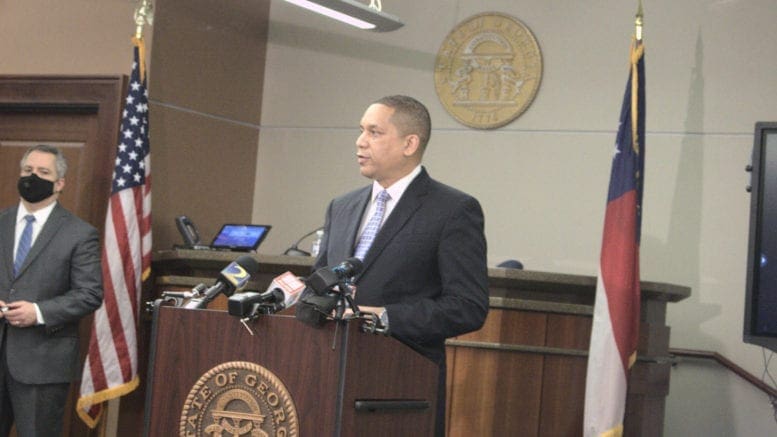Cobb County District Attorney Flynn D. Broady, Jr. will hold a Community Town Hall at Switzer Library-Community Room at 266 Roswell Street, Marietta, GA at 6:00pm on Wednesday, March 30, 2022.
DA Broady told the Courier via email, “Our town hall meetings will give us an opportunity to enhance public safety through community engagement and understanding. Providing knowledge of how and why we do the things we do. All in an effort to make Cobb the best County, not only in Georgia, the best in the Nation.”
According to the news release announcing the town hall:
The town hall is open to the public. The attendees will hear from Cobb County District Attorney Flynn D. Broady, Jr. about his first year in office and have an opportunity to network with other leaders while learning about Cobb’s future Family Advocacy Center.
There will be a meet and greet at 6:00pm. The meeting will begin promptly at 6:30pm and end promptly at 7:30pm.
About the Family Justice Center
The Family Justice Center was organized in 2020 when the office of then-DA Joyette Holmes received a $400,000 grant for the project.
DA Flynn Broady announced that the Family Justice Center initiative will be named the Cobb Family Advocacy Center (FAC).
The grant is administered through Georgia’s Criminal Justice Coordinating Council with federal dollars from the Victims of Crime Act. Only two other Georgia communities, Waycross and Macon, were awarded grants to create family justice centers. Savannah has the only existing center in Georgia.
Funds for the center come from federal dollars through the Victims of Crime Act, and the grant is administered by Georgia’s Criminal Justice Coordinating Council.
The mission of the Family Justice Centers are described on the Georgia CJCC website as follows:
Family Justice Centers are multi-agency, multi-disciplinary, co-located centers that provide services to victims of interpersonal violence including, intimate partner violence, sexual assault, and child abuse. They may also address elder or dependent adult abuse and human trafficking. The Family Justice Center model is identified as a best practice in domestic violence intervention and prevention services. Its documented and published outcomes include reduced homicides, increased victim safety, increased autonomy and empowerment for victims, reduced fear and anxiety for victims and their children, and reduced recantation and minimization by victims when they receive this level of support. For more information on Family Justice Centers, please visit www.familyjusticecenter.org or watch What is a Family Justice Center? by the FJC Alliance.
